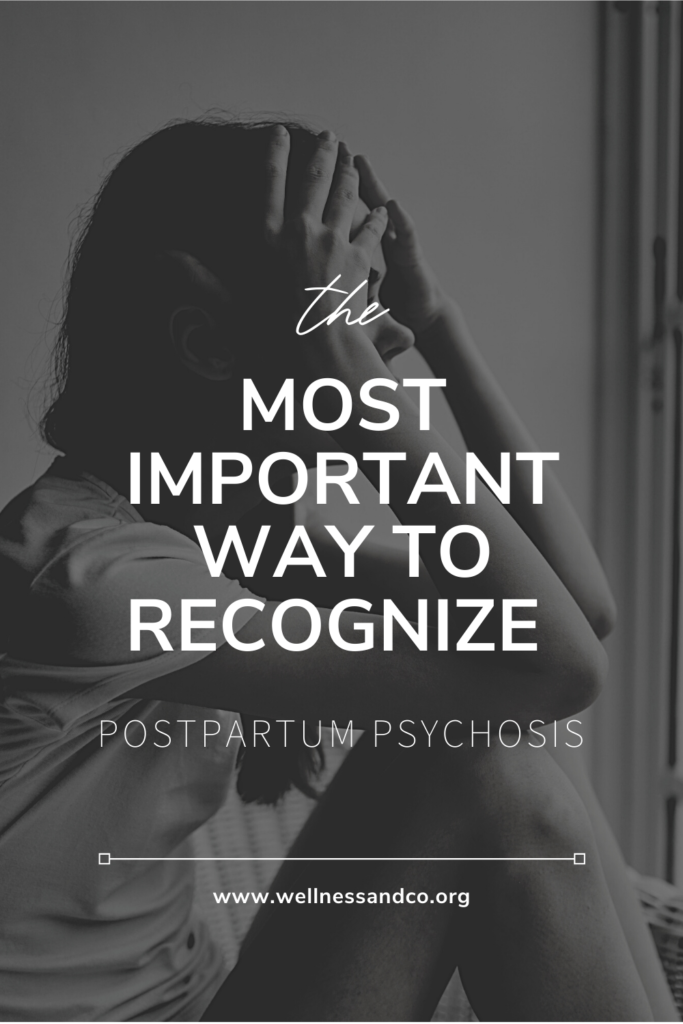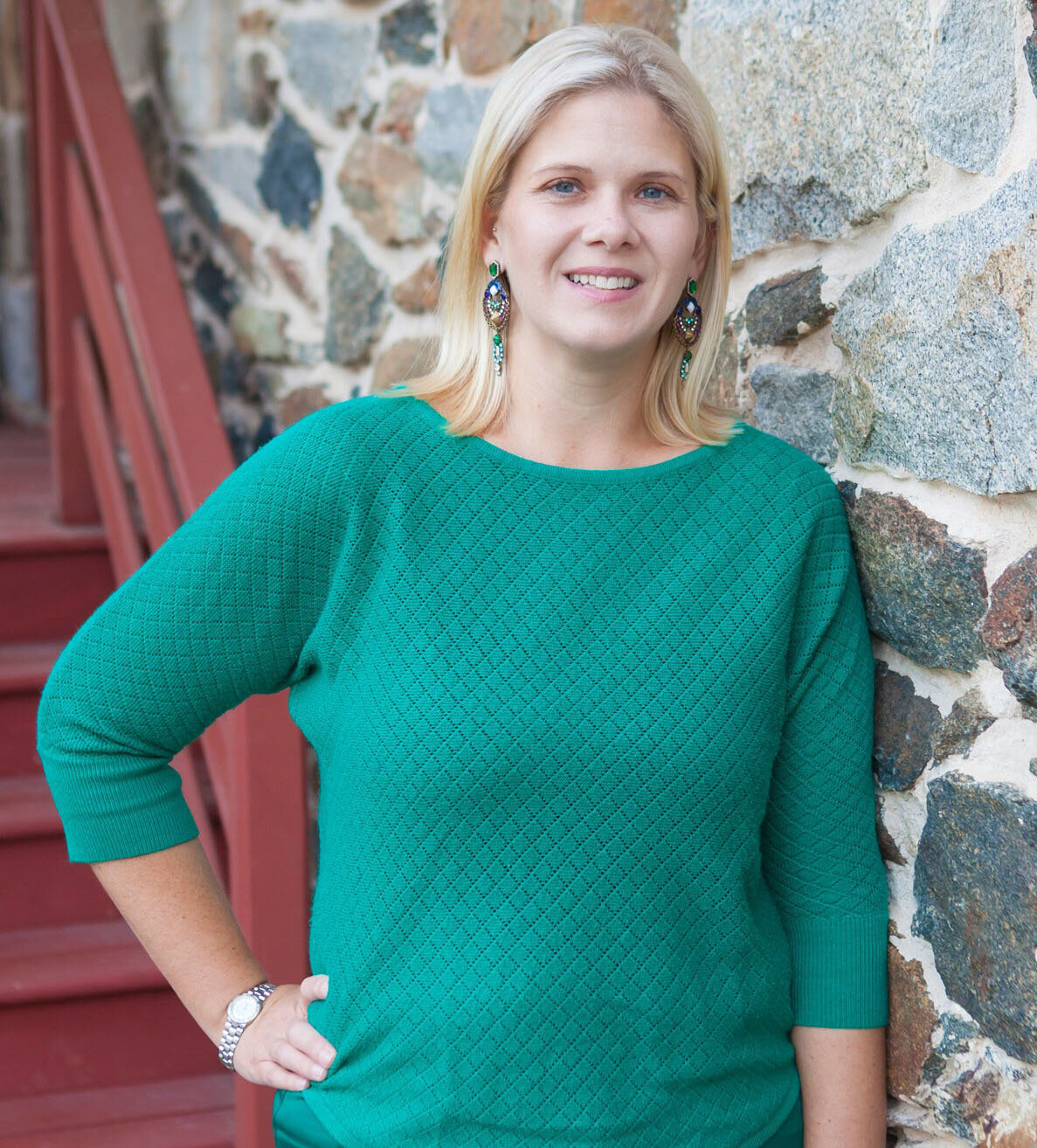Follow
Wellness & Co.
Hi, I'm Dr. K, Wellness & Co. is a growing therapy/coaching practice and educational hub for prospective clients based in Maryland and virtual clients all over the world!
Hi, I'm Dr. K
free guide
e -books
e -course
The Most Important Way to Recognize Postpartum Psychosis
May 26, 2020
We’ve been exploring lots of important topics this month on the blog. Several weeks ago, I wrote a post about postpartum depression (PPD) and the ways it manifests and the shame it brings. In that post, I mentioned that part of my own PPD was having thoughts about harming my baby. This is a really common symptom of PPD. Moms will sometimes have dark thoughts such as drowning their babies or suddenly dropping them or throwing them across the room. They will often start to even avoid their baby, both in an effort to “protect” the baby from them and to eliminate these thoughts. Most moms are so horrified by their own thoughts that they won’t share them with anyone – not their families, partners, or doctors – even if the doctor asks! They are terrified that they’ll have their babies removed from them, or worse, that these thoughts actually mean that deep down, they want to hurt their baby.
When we think of PPD, sometimes we think of famous cases that make the news. One very famous case was that of Andrea Yates, a mother from Texas who confessed to drowning her five children one by one in June of 2001. So when a mom with PPD has a thought about drowning her baby, she starts to think that she might actually do it, because women with PPD harm their babies, right?
Well…not exactly.

In addition to having really severe postpartum depression, Andrea Yates was also suffering from postpartum psychosis.
Postpartum psychosis is rare, affecting 1-2 in every 1000 postpartum women. Of those women, 5% will commit suicide and 4.5% will commit infanticide. Onset is generally within the first two weeks following birth. Half of all first time mothers who experience postpartum psychosis had no prior psychiatric hospitalizations, so this is not something that’s often easy to predict. Moms may exhibit poor concentration and disorientation and may be agitated, hyperactive, emotionally distant and lack self care. Their mood may seem elated (on top of the world!) or dysphoric (like a low level depression) or they may bounce around between these two extremes.
Risk factors for postpartum psychosis include
- being a first time mom,
- discontinuing a mood stabilizer,
- complications during pregnancy or birth,
- perinatal or neonatal loss,
- previous psychiatric symptoms,
- a family history of bipolar disorder or postpartum psychosis and
- sleep deprivation
But the number one most important takeaway here?
Women with postpartum psychosis do not see their thoughts as horrifying or unreasonable.
Unlike moms with PPD or postpartum anxiety who have thoughts of harming their babies, women with postpartum psychosis don’t know that anything is wrong! This is because they are experiencing a break from reality. They may believe that their baby is in danger or that they themselves are in danger. They are often paranoid and distrusting of others. Their thinking is clouded, not rational. They are unable to recognize their own behavior as a problem.
It is also important to note that most women with postpartum psychosis do not harm themselves or their babies and their delusions are not violent. However, the risk of danger to mom and baby is always there because they are experiencing delusional thinking and irrational judgement. These women are not going to realize that their thoughts are harmful. This means that if you’ve ever had a thought about harming your baby that you are horrified by, chances are you are suffering from postpartum depression or postpartum anxiety. You do not actually want to harm your baby (not even deep down inside somewhere) and you recognize that doing so is wrong.
Women with postpartum psychosis cannot do this. Make an appointment with a therapist to start processing and treating your PMAD, but do not be ashamed or scared of your thoughts. They are very normal when you are suffering from postpartum depression or postpartum OCD and they do not mean you are a terrible person who is going to harm your baby.
The good news is that postpartum psychosis is temporary and treatable! But unlike other PMAD’s, it is an emergency and requires help right away. If you or someone you know may be suffering from postpartum psychosis, it is really important that you seek an evaluation from a medical provider. This is not something that can wait! Please call your doctor, 911, or a national crisis hotline or local crisis facility such as the Harford Crisis Center in Harford County. It is not the fault of the women suffering and with help, they can recover!
Please take care of yourselves and watch out for the mamas around you. It really does take a village.
Sending you love and support!
Erin Newton has been working with individuals and families for almost nine years now. She specializes in perinatal mental health, birth trauma, and anxiety related issues. She strives to help her clients feel seen, heard, understood and to give them the tools they need to start their own journey of healing.
Leave a Reply Cancel reply
CONTACT
Start Here
BLOG
OUR TEAM
SHOP
ABOUT
©2025 Wellness & Co. | All Rights Reserved | Design by EverMint Design Studio
BACK TO TOP
connect with us on instagram
